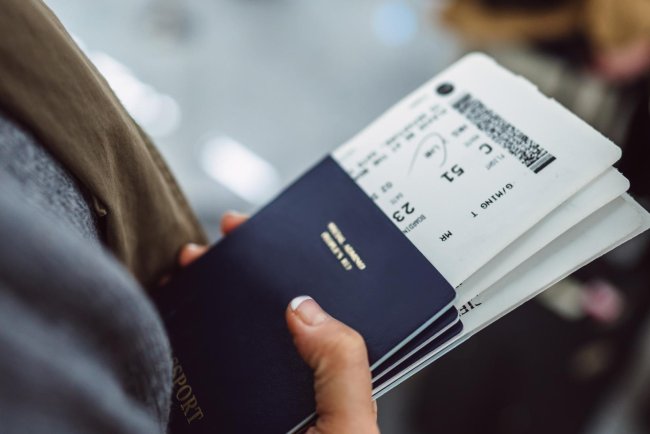1. What should I do if I have a medical emergency while on vacation?
If you experience a medical emergency while on vacation, the first step is to assess the severity of the situation. For life-threatening conditions such as severe chest pain, difficulty breathing, or uncontrolled bleeding, contact the local emergency services immediately. Be aware of the emergency number in the country or region you are visiting. For non-urgent issues, visit a nearby hospital or clinic, and make sure to bring identification and any medical information such as insurance details or prescriptions.
2. How can I find a hospital while on vacation?
Before your trip, research reputable hospitals and clinics at your destination, especially if you have pre-existing medical conditions. Once at your location, if an emergency arises, you can ask hotel staff, use a smartphone map application, or call the local emergency number for assistance in finding the nearest hospital. In some cases, your country's embassy or consulate can provide recommendations for hospitals, especially those that cater to international tourists or offer English-speaking services.
3. Does my health insurance cover international medical emergencies?
It depends on your health insurance provider. Some health insurance plans include coverage for international emergencies, while others do not. It’s essential to check with your insurance company before you travel to understand what is covered, whether they have partnerships with hospitals abroad, and what documentation you need to file a claim. If your regular health insurance doesn’t cover international care, consider purchasing travel insurance that includes medical coverage.
4. Should I purchase travel insurance that includes medical coverage?
Yes, purchasing travel insurance that includes medical coverage is highly recommended, especially if you are traveling abroad. Travel insurance can cover unexpected medical emergencies, including hospital visits, medication, and even emergency evacuations if necessary. Make sure the plan you choose offers adequate coverage for the destination you're visiting, and check for any exclusions, such as pre-existing conditions or adventure sports.
5. How can I communicate with doctors if I don’t speak the local language?
Language barriers can complicate medical situations, but several solutions can help. First, use a translation app such as Google Translate to assist with basic communication. Some medical facilities may have interpreters available, especially in tourist-heavy areas. If you have a serious condition, carry a card with key medical information (such as your condition, medications, and allergies) written in the local language. You can also contact your embassy, as they may provide assistance in finding English-speaking doctors.
6. What symptoms should prompt me to seek immediate medical attention while on vacation?
Certain symptoms require immediate medical attention, and you should never delay in seeking help if you experience them. These include severe chest pain, difficulty breathing, sudden loss of consciousness, severe abdominal pain, uncontrollable vomiting or diarrhea, heavy bleeding, and any signs of stroke (such as slurred speech or weakness on one side of the body). If you experience any of these symptoms, go to the nearest hospital or call the local emergency number.
7. What should I do if I need prescription medication while on vacation?
If you need prescription medication while on vacation, make sure to bring a copy of your prescription (preferably translated into the local language if traveling internationally). If you lose your medication or need a refill, visit a local pharmacy or doctor to get a new prescription. Some medications that are over-the-counter in your home country may require a prescription abroad, so plan accordingly and always carry extra doses of any essential medication.
8. How can I ensure that the hospital or clinic I visit is trustworthy?
Researching hospitals and clinics before your trip is the best way to ensure you are going to a trustworthy facility. Look for hospitals with international accreditation or those recommended by your country’s embassy. If you find yourself in an emergency and can’t research ahead of time, consult with hotel staff or local authorities for recommendations. Larger cities and tourist destinations often have reputable hospitals catering to international visitors.
9. How do I handle medical bills and insurance claims after treatment abroad?
If you receive medical treatment abroad, you may need to pay the bill upfront, as some hospitals require immediate payment. Make sure to ask for a detailed, itemized receipt, which you can later submit to your insurance company for reimbursement. Contact your insurance provider as soon as possible to inform them of the situation and ensure you follow their claims process. If you have travel insurance, they may be able to coordinate payment directly with the hospital.
10. What information should I carry with me in case of a medical emergency?
When traveling, always carry a copy of your health insurance card, travel insurance details, a list of current medications, your doctor's contact information, and emergency contact numbers. If you have a chronic condition or serious allergy, wear a medical alert bracelet or carry a card that details your condition in both English and the local language. Having this information on hand can expedite your treatment and ensure you receive the appropriate care.
11. What should I do if I get sick on a cruise?
Most cruise ships have onboard medical facilities with qualified doctors and nurses who can handle minor illnesses and injuries. If you get sick or injured while on a cruise, visit the onboard medical center. For more serious medical conditions, the cruise may need to reroute to the nearest port where you can receive hospital care. Always check the medical facilities available on the cruise before you travel, especially if you have pre-existing conditions that may require attention.
12. Can I get reimbursed for medical expenses incurred on vacation?
Yes, you can often get reimbursed for medical expenses incurred on vacation, provided you have appropriate insurance coverage. Keep all medical receipts, bills, and reports from your treatment, and contact your health or travel insurance provider to initiate a claim. Be aware that some insurance policies have exclusions or limits on coverage for international care, so it's important to check the details of your policy before your trip.
13. What should I include in a medical travel kit?
A well-prepared medical travel kit should include basic first-aid items like bandages, antiseptic wipes, gauze, adhesive tape, and pain relievers (such as ibuprofen or acetaminophen). It should also contain any prescription medications you need, a copy of your prescriptions, anti-diarrheal medicine, allergy medication, motion sickness tablets, and hand sanitizer. If traveling to a remote location, consider adding extra supplies like a thermometer, tweezers, and a cold pack.
14. What should I do if I have a pre-existing condition and need medical care while on vacation?
If you have a pre-existing medical condition, you should take extra precautions before traveling. Bring copies of your medical records and a letter from your doctor explaining your condition and medications. Always carry extra medication in case your trip is delayed, and be aware of the nearest hospital or clinic that can manage your condition. If you experience a medical emergency related to your condition, visit a hospital immediately and provide your medical history to ensure you receive appropriate treatment.
15. How do I find a doctor while traveling in a foreign country?
If you need to see a doctor while traveling in a foreign country, you can start by asking hotel staff or contacting your country's embassy for recommendations. Some travel insurance plans also offer assistance in finding local doctors. Many larger hospitals in major cities have English-speaking staff, especially in tourist areas. Alternatively, if you’re staying in a remote or rural area, you may need to travel to the nearest city for medical care.
16. What should I do if I need medical evacuation while on vacation?
In the case of a serious medical emergency that cannot be treated at your vacation destination, a medical evacuation may be necessary. Contact your travel insurance provider immediately, as they can help coordinate your evacuation and provide support throughout the process. If you didn’t purchase travel insurance, contact your embassy, as they can provide assistance in finding evacuation services. Keep in mind that medical evacuations can be costly, which is why travel insurance with medical evacuation coverage is recommended.
17. What should I know about vaccinations before traveling?
Before traveling, check if your destination requires specific vaccinations. Common vaccines for international travelers include those for yellow fever, hepatitis A and B, typhoid, and rabies. You can visit a travel health clinic or your primary care doctor to get vaccinated. It’s also important to ensure routine vaccines, such as tetanus and measles-mumps-rubella (MMR), are up to date. Research any health risks specific to your destination and take preventative measures accordingly.
18. How do I avoid needing a hospital visit while on vacation?
Prevention is the best strategy for avoiding hospital visits on vacation. Make sure to stay hydrated, especially in hot climates, and eat food from reputable sources to avoid foodborne illnesses. Be cautious during adventure activities like hiking or swimming, and always wear appropriate safety gear. If you’re traveling to a remote area, inform someone of your itinerary, and carry a GPS or satellite phone for emergencies. Taking these precautions can help reduce the likelihood of needing medical attention.
19. How do I handle travel insurance claims after receiving medical treatment?
After receiving medical treatment abroad, contact your travel insurance provider as soon as possible to start the claims process. Submit all relevant documentation, including itemized bills, medical records, and any prescriptions. Make sure to follow the claims process outlined in your policy, as failure to provide necessary documentation can delay reimbursement. Keep copies of everything you submit, and be prepared for the claims process to take several weeks, depending on the complexity of your case.




















